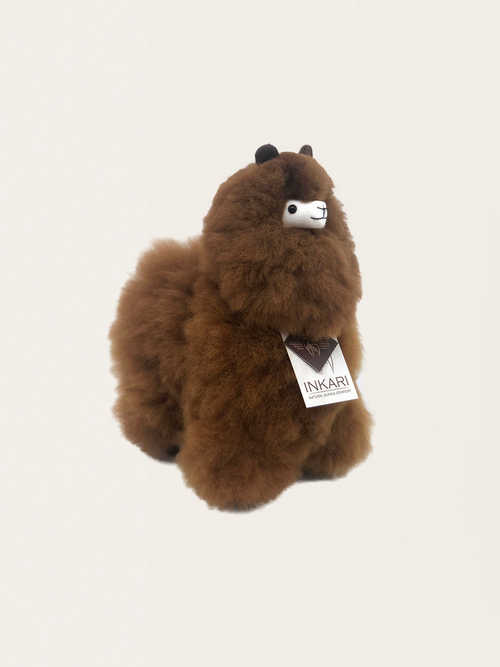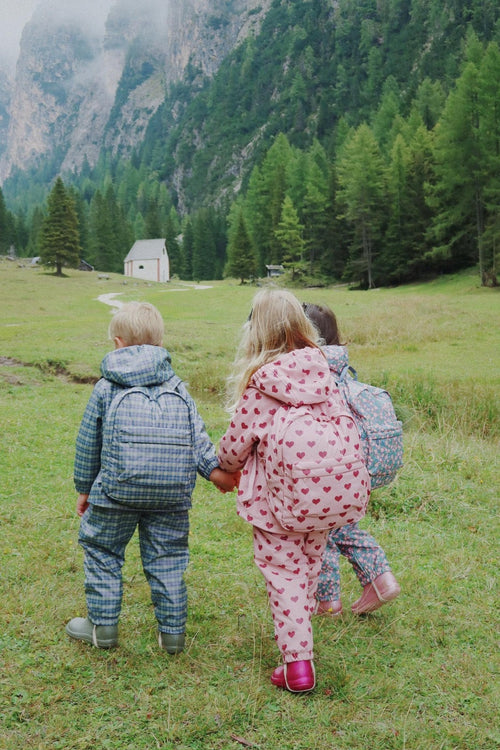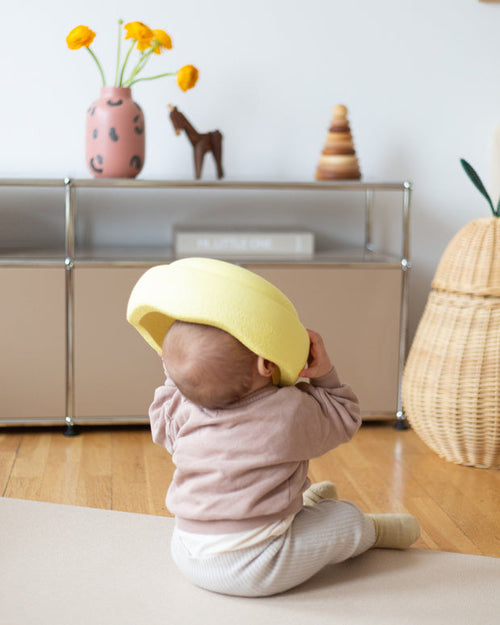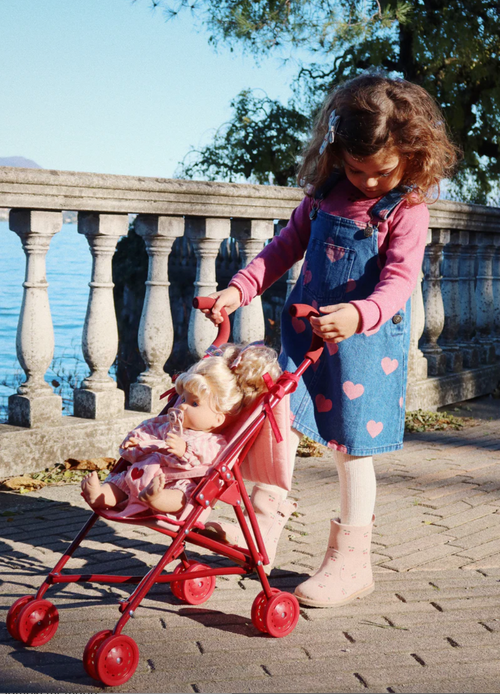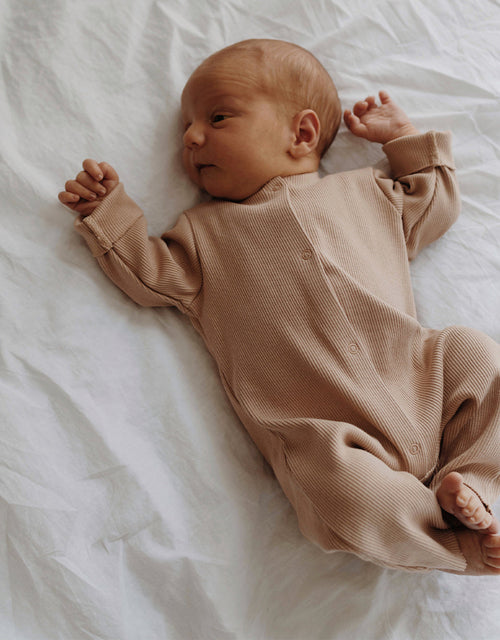At home, you can easily get by without them by using running water. But what if you're out for a walk or simply don't feel like running to the bathroom every time you get dirty? Then you realize the usefulness, and often even necessity, of having them on hand. Sometimes it's difficult to decide which wet wipes to choose. There are hundreds of varieties on the market, and not all are suitable for baby's delicate skin. Below, we'll suggest what to consider when choosing the right wipes for your newborn.
1. Baby care and the composition of wet wipes
At first glance, wet wipes look identical. They all have a similar description on the packaging and the mandatory slogan "wet wipes for babies." If we don't know what to look for or don't have time when shopping, the first thing we look at is the price or a brand we're drawn to. However, these shouldn't be the main factors that should catch our attention, but the chemical composition of the packaging. Why is this so important? Because wipes aren't always moisturizing, the ingredients they contain often clog baby's pores, and they can even cause allergies. Newborn skin is very sensitive, so baby wipes shouldn't contain allergenic preservatives, artificial disinfectants, detergents, or pore-clogging paraffin. The ingredients that should absolutely be avoided are listed below:
-
parabens, i.e. highly allergenic preservatives, such as Butylparaben, Propylparaben, Methylparaben,
-
Phenoxyethanol – a preservative and solvent - an allergen that can enter the bloodstream and is particularly dangerous for pregnant women and children,
-
Methylisothiazolinone – preservative and strong allergen,
-
Propylene Glycol – a preservative, not recommended in children's products, causes skin diseases and allergies,
-
Formaldehyde and its derivatives - have a toxic effect on the liver, skin, respiratory tract, immune system, reproductive system, nervous system
-
strong detergents, such as: Sodium Lauryl Sulfate (SLS), Sodium Laureth Sulfate (SLES) – irritate the skin, dry it out, cause allergies,
-
glycols, including PEG-7 Glyceryl Cocoate – detergents, emulsifiers, cleansing substances – dry out the skin and may be dangerous for children and pregnant women,
-
Paraffinum Liquidum, Mineral Oil – petroleum derivatives – clog pores, inhibit the access of oxygen, resulting in irritation, excessive skin dryness and allergies,
-
silicones, such as Dimethicone – a dry emollient and stabilizer, gives the impression of softening and smoothing the skin, but in reality it blocks pores, irritates and contributes to inflammation,
-
fragrances, e.g. Parfum, Amyl Cinnamal, Geraniol, Eugenol – strongly irritate and cause allergies.
Good wipes should contain moisturizing ingredients like panthenol, glycerin, and allantoin. They also contain natural moisturizing and regenerating extracts like chamomile, calendula, aloe, and rosemary, as well as anti-inflammatory and moisturizing oils like linseed, rapeseed, sunflower, and almond.
Recently, Water Wipes, 99.9% water-saturated wet wipes, have become increasingly popular. If you tend to wash your baby under running water at home, Water Wipes are a great alternative for use on walks. You can find Water Wipes baby wipes in our online store. Click here to purchase them.
2. Material used to make baby wet wipes
Baby wet wipes are available on the market and are made from a variety of materials. You can find wipes made of polyester, non-woven fabric, cellulose, bamboo, or cotton. They can be disposable or reusable. The latter are most often made of bamboo or cotton and come in the form of small towels that can be washed and reused. This is a very eco-friendly solution, but it's best used at home. Wipes made of biodegradable materials, such as cotton, bamboo, or cellulose, are useful for walks. We recommend Water Wipes, made of natural cotton, which are completely biodegradable. Their additional advantage is their composition: they are 99.9% water-saturated. They do not irritate the skin; they simply cleanse the baby's skin, preparing it for further care.
3. The scent of baby wipes
Of course, the pleasant scent of wet wipes can make life much more pleasant when changing a baby's diaper. However, it's important to remember that wet wipes often contain chemical fragrances, such as the aforementioned Parfum, Geraniol, or Eugenol, which we recommend avoiding when caring for a newborn. When purchasing baby wipes, make sure they are infused with natural fragrances, such as chamomile or aloe vera extract, or, as in the case of Water Wipes, grapefruit seed extract.
4. Size of baby wipes
When purchasing wipes, it's worth paying attention to their size. Baby wipes can vary significantly in size, which affects the number of wipes used. You can buy a 100-pack, but if a single wipe is small, you'll use up the entire pack faster. Therefore, it's worth checking the size of each wipe on the packaging. You may find that a smaller pack with larger wipes will last longer.
5. Convenience and size of baby wipes packaging
Contrary to popular belief, the ease of removing wipes from the packaging is crucial. You can buy a pack of a well-known brand, only to waste half the wipes on the first use because they were folded incorrectly. Therefore, it's worth paying attention to the packaging design. It also helps the wipes stay moist longer – a common problem that mothers complain about. This can be solved by occasionally turning the pack upside down. The size of the pack is also important. If it's large, it's a great aid on the changing table. However, on a walk, a pack that's too large can be a problem when you need to pack a bag full of diapers, bottles, a changing mat, and a large set of wipes. Water Wipes have a compact size, making them perfect for walks.

